What Museveni said at swearing-in of newly appointed judges
During the ceremony at State House, Entebbe, Museveni said the judges will play an important role in upholding the law and ensuring justice for all Ugandans.
President Museveni (c) posing for a group photo with government officials and newly appointed judges after their swearing-in at ceremony at State House Entebbe. (PPU)
____________________
President Yoweri Kaguta Museveni on Wednesday presided over the swearing-in ceremony of nine judges he recently appointed.
During the ceremony at State House, Entebbe, he said the judges will play an important role in upholding the law and ensuring justice for all Ugandans.
Museveni also made a compelling appeal for a justice system that aligns with Uganda’s cultural and historical context, stressing the need for a legal framework that reflects African traditions rather than relying solely on Western models.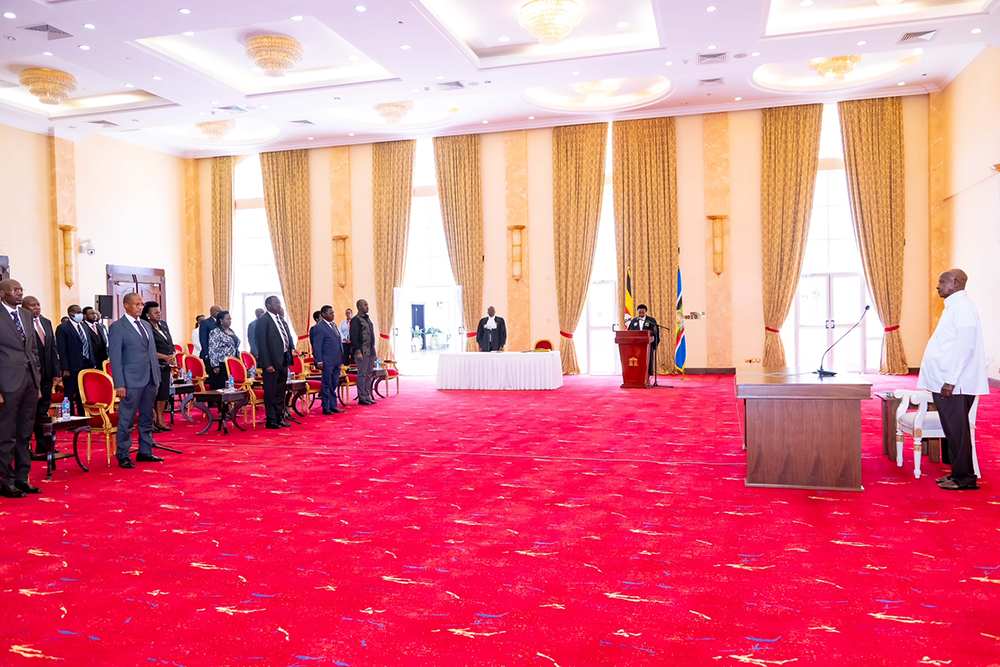
(PPU)
The ceremony saw the official swearing-in of;
▪️ Justice Muzamiru Mutangula Kibeedi (Supreme Court)
▪️ Justice Musa Ssekaana (Court of Appeal)
▪️ Lady Justice Cornlia Kakooza Sabiiti (Court of Appeal)
▪️ Lady Justice Stella Alibateese (Court of Appeal)
▪️ Lady Justice Florence Nakachwa (Court of Appeal)
▪️ Justice Jesse Byaruhanga Rugyema (Court of Appeal)
▪️ Justice John Mike Musisi (Court of Appeal)
▪️ Lady Justice Ketrah Kitariisibwa Katunguka (Court of Appeal)
▪️ Lady Justice Esta Nambayo (Court of Appeal)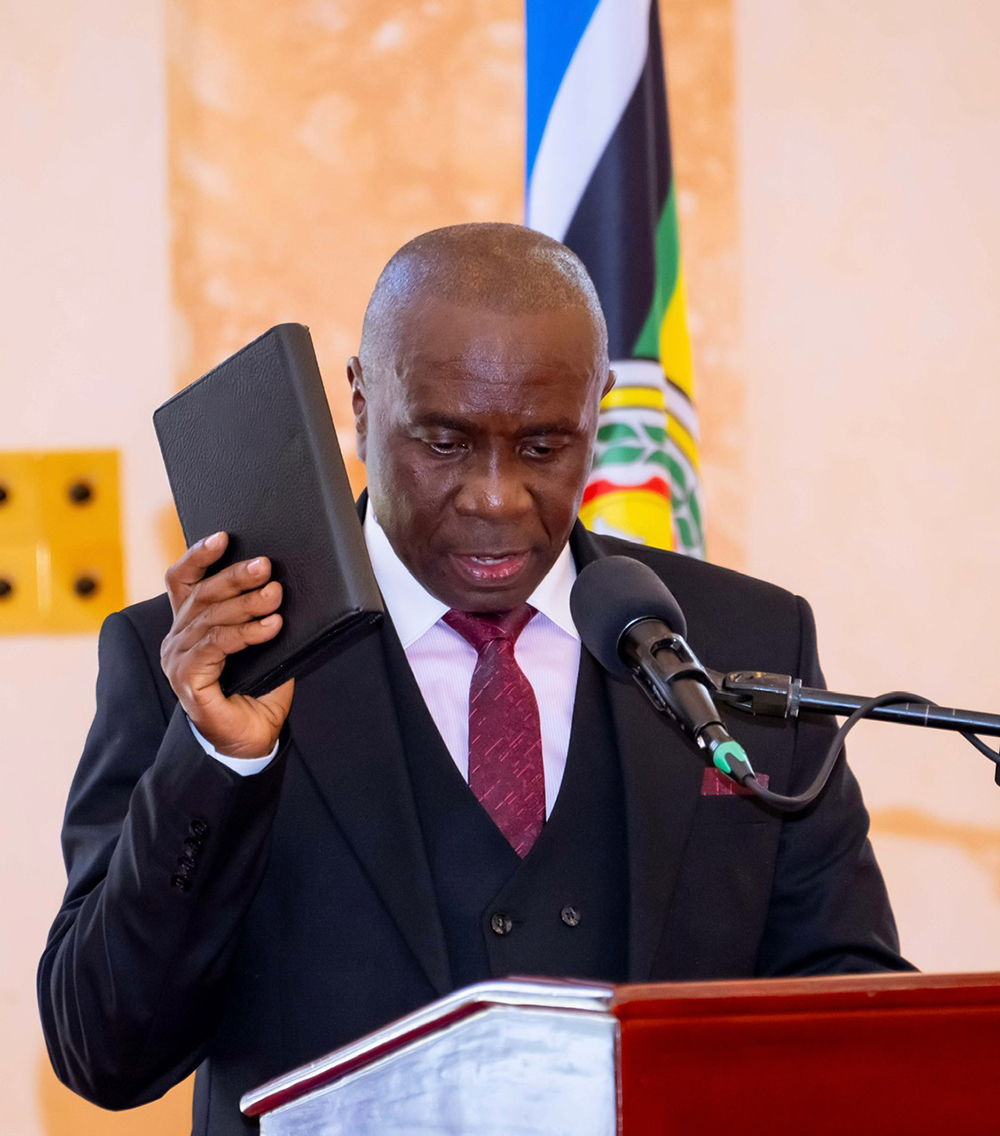
(PPU)
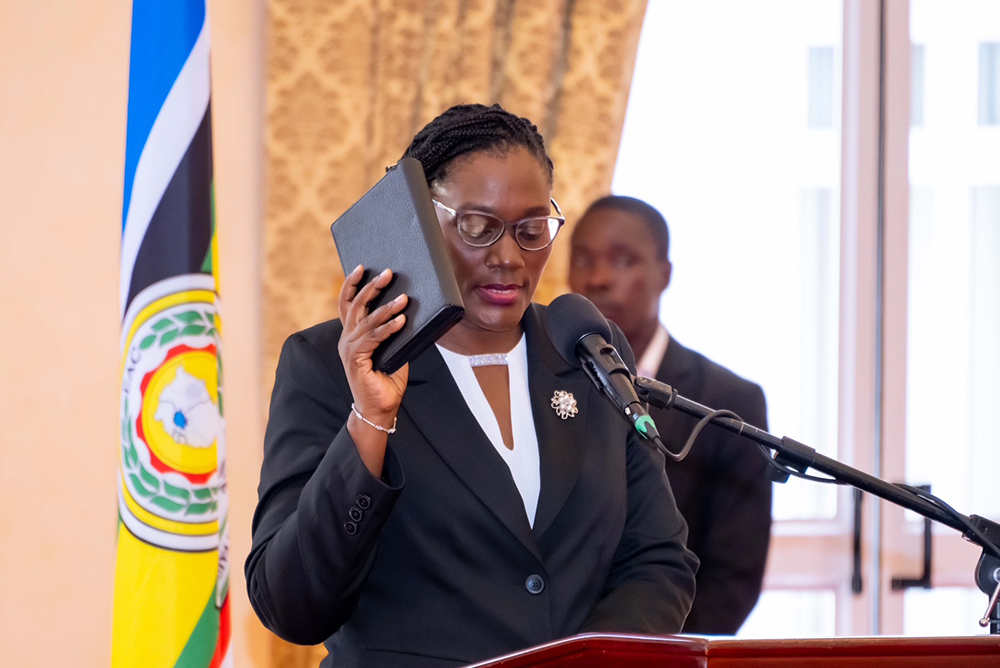
(PPU)
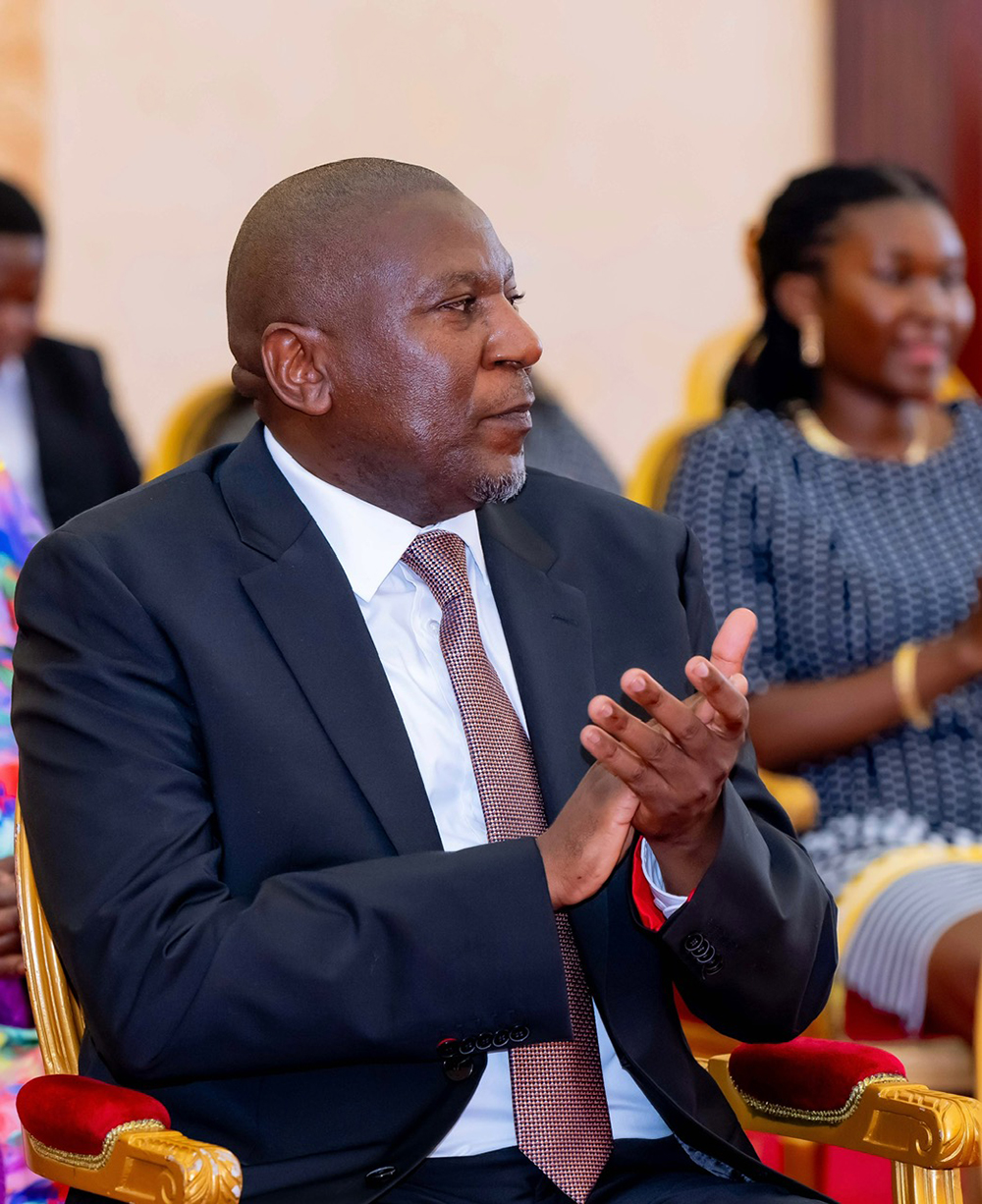
(PPU)
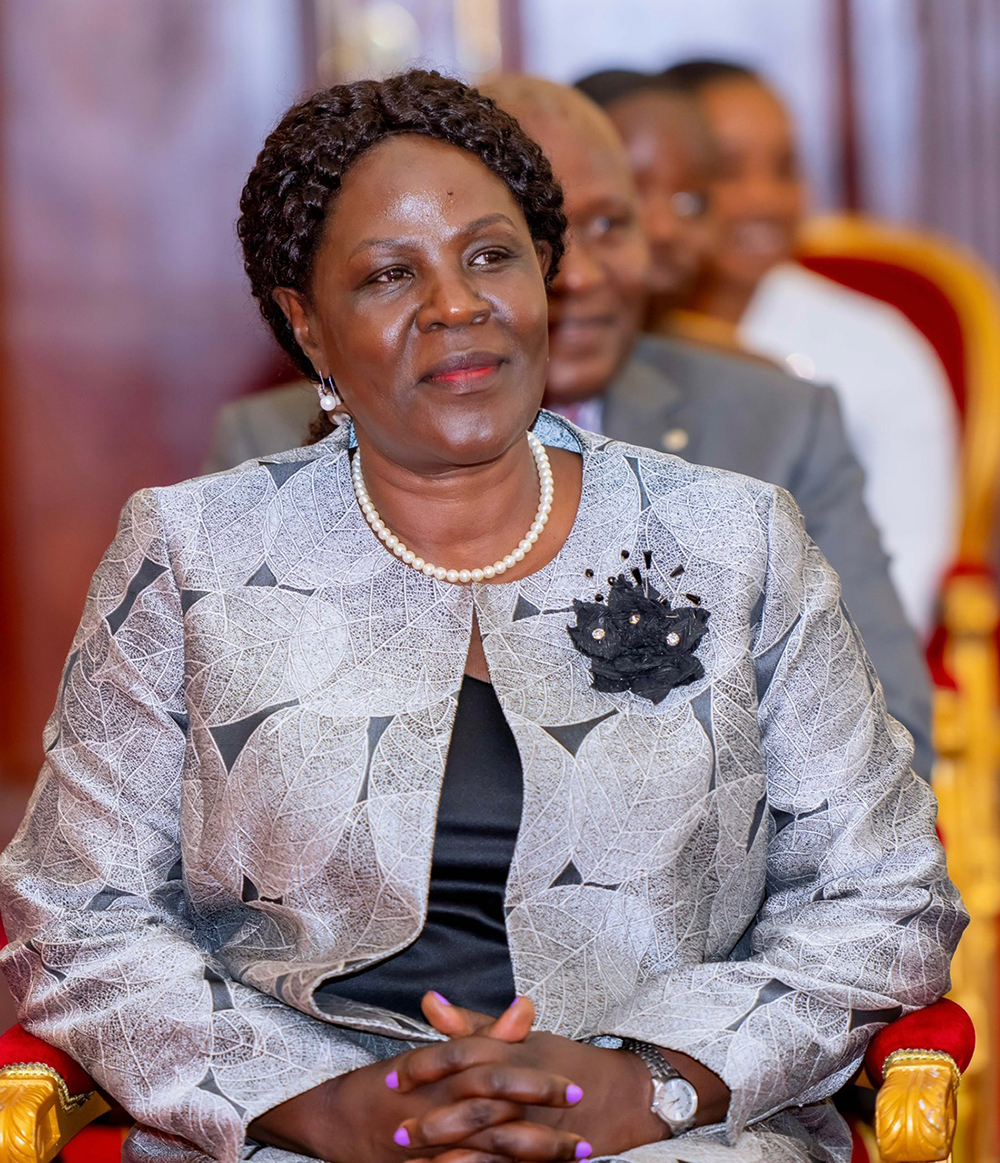
(PPU)
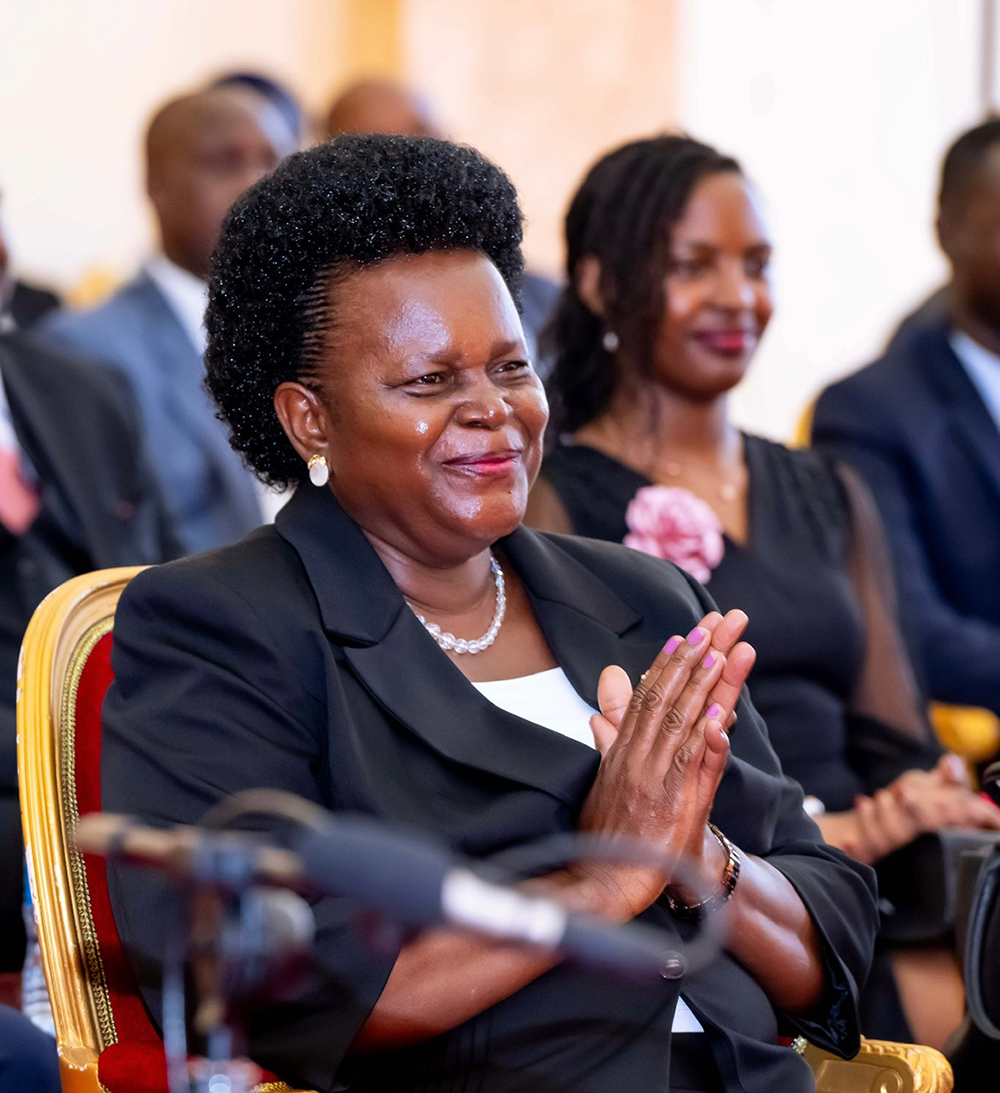
(PPU)
'Truth and justice'
These appointments, made by the President on February 7, are expected to enhance the Judiciary’s efficiency in delivering justice.
He congratulated the newly sworn-in judges and their families, encouraging them to serve with integrity and ensuring that Uganda’s justice system reflects the values and aspirations of its people.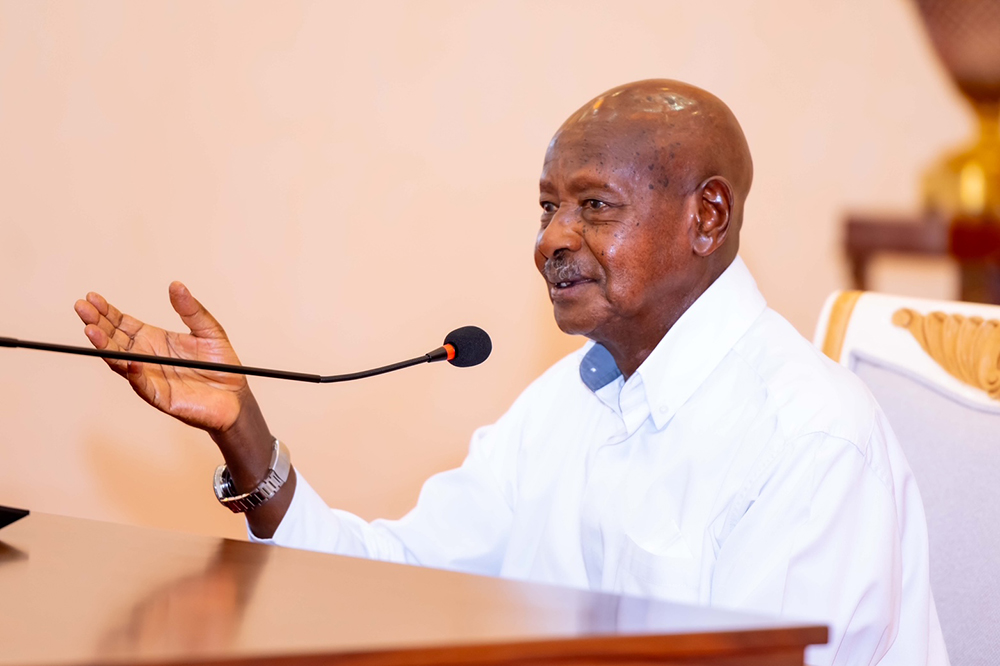
President Yoweri Kaguta Museveni. (PPU)
Museveni noted that justice is often defined according to societal norms and circumstances.
Citing historical practices such as wife inheritance among the Banyankore, he explained that such customs were once considered a form of social security for widows and their children. However, with societal evolution, some traditions need to be reviewed and phased out where necessary.
Reflecting on Uganda’s political journey, the President underscored the role of freedom fighters in shaping the country’s constitutional framework.
“In the 1960s, we, the freedom fighters, argued that justice should be tailored to our own society, not imposed upon us by European standards. That is how we have been able to understand truth and justice."
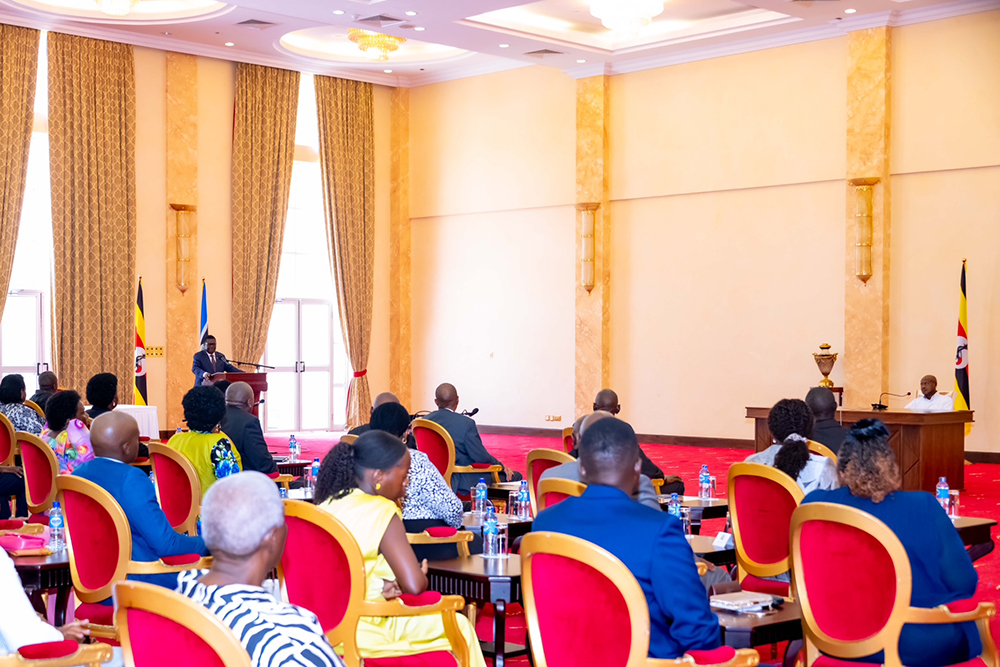
(PPU)
The President also addressed Uganda’s judicial approach to crime and punishment, particularly the death penalty.
He pointed out that traditional African societies adhered to strict principles of justice, often demanding full accountability for crimes such as murder.
“In African traditions, if you killed my brother, you had to face revenge. This aligns with the Old Testament’s ‘an eye for an eye’ principle. However, the modern legal system insists that execution is not a solution, opting for long imprisonment instead. This does not sit well with many communities."
Museveni expressed satisfaction with the adoption of Alternative Dispute Resolution (ADR) mechanisms, calling on the legal fraternity to embrace a mindset that better understands the Ugandan people.
“It is not your primary responsibility as lawyers, but it would be helpful if legal professionals understood our people's perspectives. That way, when we enact legislation, it will be well received."
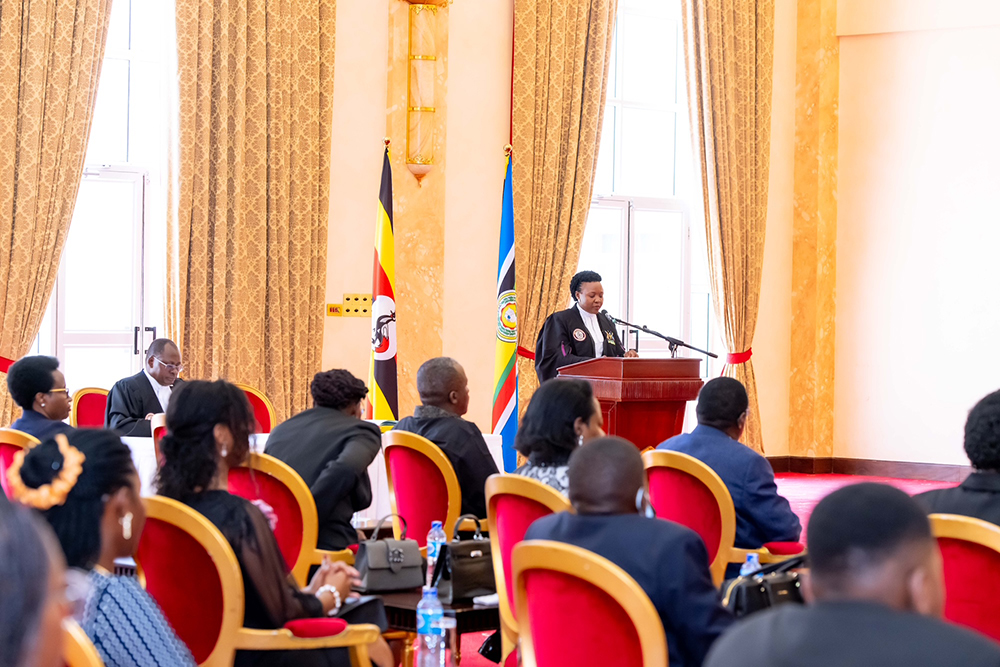
(PPU)
'Fed up'
The President further reiterated his long-standing opposition to granting bail for capital offenders, calling it a mistake that must be addressed.
“The Banyankore have a saying: ‘Aleileyo yagalika’ meaning, he stole and returned from prison unbothered. People are fed up with this. It is provocative and must stop."
On the role of military courts, Museveni defended their jurisdiction over both soldiers and certain civilian cases.
“The military courts serve two key purposes: first, to maintain discipline within the army, and second, to handle cases involving armed criminals. If a soldier commits an offense, handling it through civilian courts would undermine military discipline,” he explained.
He cited the example of the cattle rustlers and Karachunas who were tried in the military courts.
“I hear there are 3,000 of them now, and this process helped remove them from circulation, giving them a chance to reform."
The President also questioned why some Western nations criticize Uganda’s use of military courts for civilians in armed-related offenses while simultaneously endorsing values contrary to African traditions.
“They claim it is ‘irregular’ for armed civilians to be tried in military courts, yet they believe a man can marry another man. What kind of reasoning is that?"
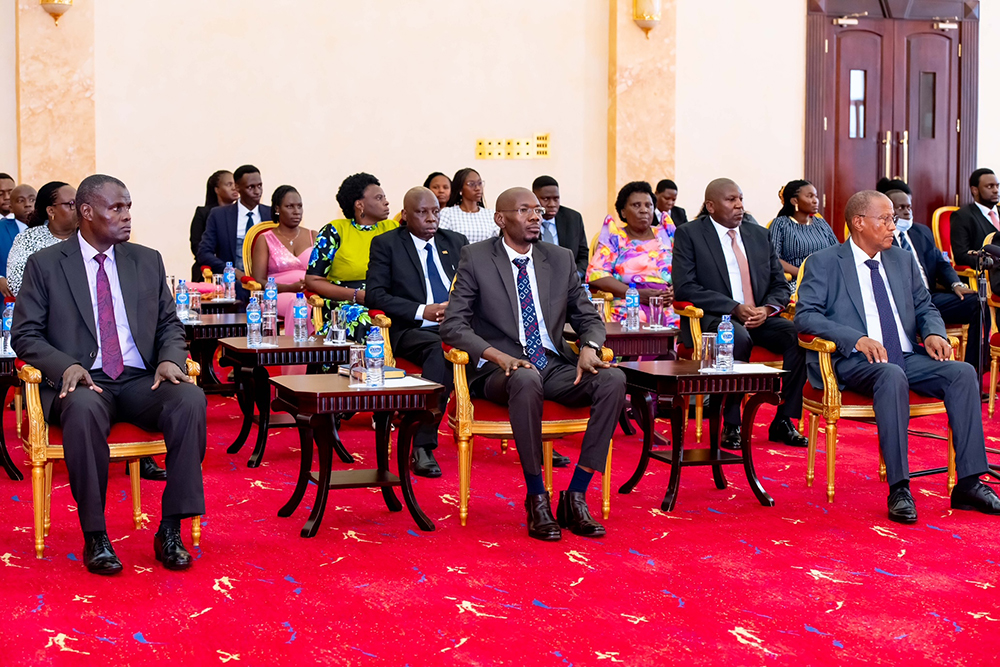
(PPU)
'Invest in railway'
Responding to the fund-seeking from the Judiciary, Museveni reiterated the need for prioritization in government spending.
“We freedom fighters never asked for money; we only needed bullets and guns to fight for our cause. When I met Muammar Gaddafi in 1981, he asked what I needed. I told him: ‘Guns and bullets’. We knew that with weapons, we could handle everything else."
Museveni further urged government institutions, including the Judiciary, to adopt a similar mindset of prioritizing “essential needs over luxuries”.
“The economy is growing because we emphasize sectors that can grow quickly. Each year, we allocate sh1 trillion to the Parish Development Model (PDM). Soon, we will have a surplus of eggs, milk, meat and other produce."
The President also downplayed Uganda’s removal from the African Growth and Opportunity Act (AGOA) trade benefits by the United States, and the suspension of USAID operations, stating that the country is not worried.
“I saw a US Congressman talking about these issues, but we were never worried. Our industries, electricity, roads, and production are still growing. The only thing we need now is to invest more in railway infrastructure,” he remarked.
'A record'
On his part, Chief Justice Alfonse Owiny-Dollo welcomed the new judicial appointments, describing them as a historic milestone in Uganda’s Judiciary.
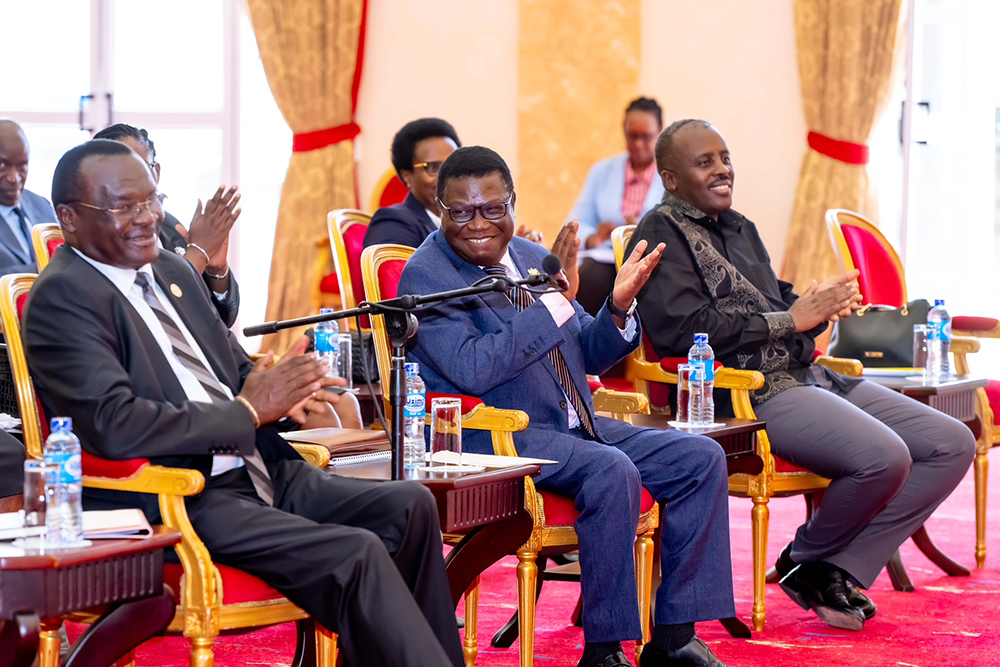
Chief Justice Alfonse Owiny-Dollo (left) and Justice minister, Norbert Mao (c) during the swearing-in at State House Entebbe. (PPU)
He praised President Museveni for fulfilling his 2021 commitment to strengthening the Judiciary.
“I am happy to warmly welcome one elevated Justice to the Supreme Court and eight to the Court of Appeal.
"This is a record; never before have we had such a large number of appointments at once. It reflects the commitment to transforming the Judiciary so it can better serve the people,” said Owiny-Dollo.
'Fulfilling profession'
With 21 justices now at the Court of Appeal, the Chief Justice said the Judiciary will be able to convene multiple constitutional panels simultaneously, ensuring faster resolution of petitions.
On infrastructure, he noted plans to establish regional Courts of Appeal, starting with Gulu and Mbarara, pending budget approval in the next financial year.
Owiny-Dollo also acknowledged the government's efforts in rationalizing High Court circuits in districts like Kiboga, Bushenyi, Kitgum, and Kasese, with further expansion planned in areas such as Apac, Wakiso, Entebbe, Bugiri, and Ntungamo.
He emphasized Uganda’s leadership in Alternative Dispute Resolution in Africa, highlighting ongoing efforts to train judicial officers, religious leaders, and cultural leaders in mediation.
He appealed for continued government support to strengthen ADR, which promotes reconciliation and reduces case backlog.
The Chief Justice concluded by recognizing the sacrifices of judicial officers and their families, urging them to support their loved ones in their demanding roles.
“The Judiciary is a fulfilling profession, but it requires dedication and sacrifice. I ask families to be understanding because their support enables judicial officers to effectively serve the nation."
With these developments, the Chief Justice expressed optimism that Uganda’s Judiciary is on the right path towards a more efficient and people-centered justice system.
'Deliver justice fairly'
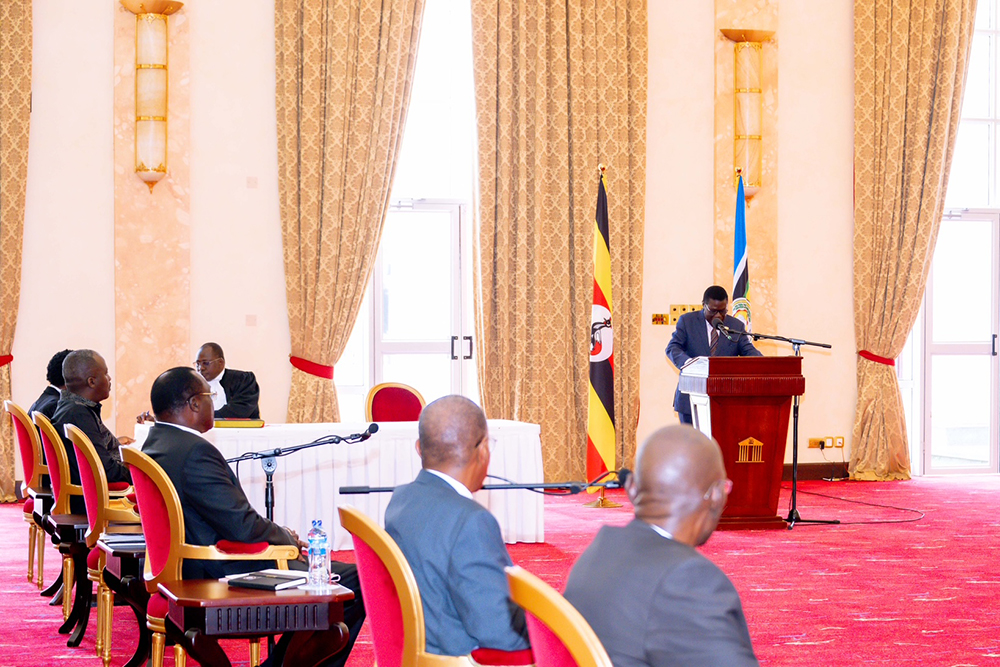
Justice minister, Norbert Mao delivering his remarks. (PPU)
On his part, justice minister, Norbert Mao, expressed his gratitude to President Museveni for enabling the delivery of justice through the increase in the number of judicial officers.
“The Constitution has given us the foundation, but it is Your Excellency’s leadership that ensures the Judiciary can function effectively by increasing the number of judicial officers,” he said.
The Minister noted that the Judiciary plays a pivotal role in stimulating the economy, particularly as trillions of shillings are tied up in the courts, especially in commercial disputes.
“The Judiciary is essential in ensuring that businesses can thrive by resolving disputes efficiently."
Mao also highlighted the responsibility of the newly appointed justices, urging them to focus on delivering impartial justice to the people.
“While judicial accountability and independence are often discussed, the real responsibility is in delivering justice fairly and without bias,” he said.
The minister said the three arms of government — Executive, Legislature, and Judiciary — must work together to protect and preserve the Constitution.
“We must all ensure that the Constitution continues to guide our nation and safeguard the rights of all Ugandans."